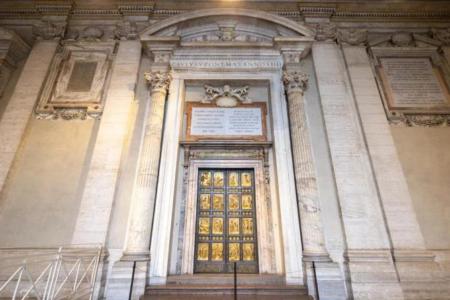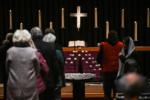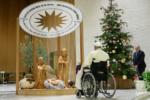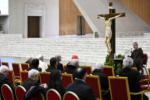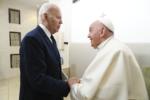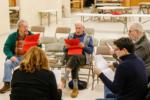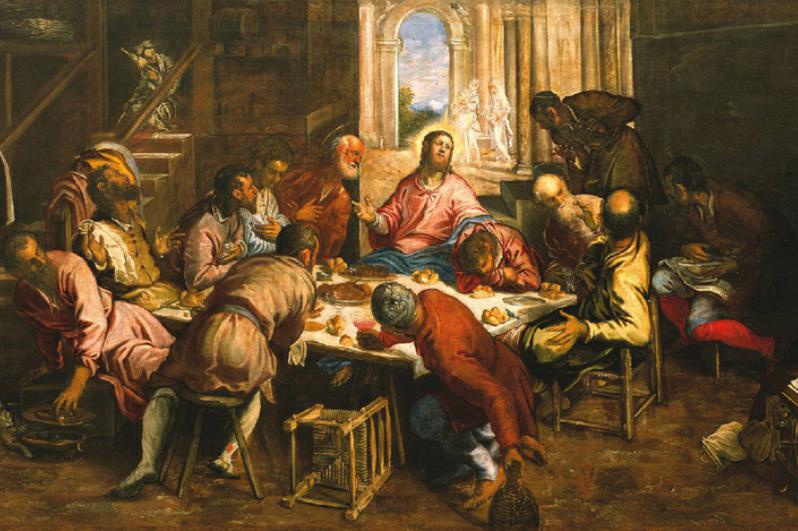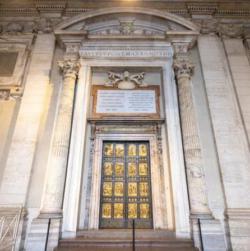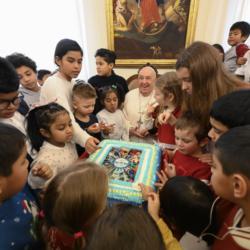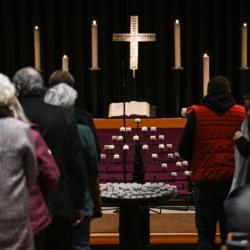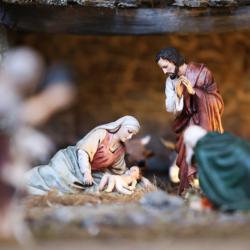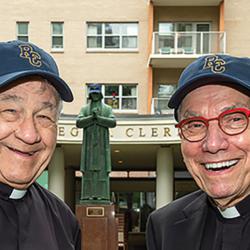The power of witness: How the early Church evangelized
"Repent and be baptized every one of you in the name of Jesus Christ for the forgiveness of your sins; and you shall receive the gift of the Holy Spirit" (Acts 2:38).
Peter finishes the first Christian sermon with these words, having powerfully preached the death and resurrection of Jesus. The crowd knew what had happened to Jesus 50 days earlier, as Peter reminds them that they themselves had participated in his death. From the day of Pentecost, the Church grew consistently, with Christians breaking bread in their homes, following the teaching of the apostles, and exercising charity to those in need.
The blueprint for conversion had been set, and the Church first expanded through the same style of preaching, perfected by Paul who went from synagogue to synagogue in the Greek speaking towns of the Eastern Mediterranean world. We see in Acts that he did indeed find Jewish converts, though he found much greater success among the God-fearing Gentiles, who believed in the God of Israel but remained uncircumcised. They recognized Jesus as the fulfillment of God's plan to shed his light upon the Gentiles, which would be fulfilled through their conversion.
Paul delivered the first public appeal to a Gentile audience in Athens, drawing upon the Greek poets and pointing to God's providence for all people. Many people refer to this speech at the Areopagus as a failure, although Acts does tell us that it made converts. Paul's approach would continue in the early apologists, like Justin Martyr, who wrote apologies (defenses) of the Christian faith that engaged Greek philosophy and the Roman ideal of virtue. This approach would continue to appeal to those with a more intellectual bent, searching for truth amid the moral and spiritual confusion of the ancient world.
Despite these early successes, the synagogues quickly broke off contact with the early Church and the Roman Empire began an active, though sporadic, persecution. There had to be another way for the Church to continue to grow, and the answer would come through personal witness. Their different way of life was noticed by the surrounding pagans, and they wondered about it. The sociologist Rodney Stark noted in his book, "The Rise of Christianity," that Christian courage in the face of death particularly caught their attention. Christians were not only willing to die for their faith through persecution, they also accepted the risk of disease to care for the sick, even when they had been abandoned by their families. They cared for the poor, Christian and pagan alike, and treated women, children, and slaves with greater dignity, including recovering abandoned newborns. Christians clearly believed in something more powerful than any myth or philosophy and proved their faith through their actions.
Conversion began through relationships: family connections, neighbors and colleagues. Mike Aquilina describes this dynamic of the Church's growth: "The common narrative, however, is a story of friendship. There was, as far as we know, no talk of evangelistic methods or institutional programs in the underground Church ... it seems that Christians converted the world simply by befriending their next-door neighbors and persevering in friendship" (Friendship and the Fathers: How the Early Church Evangelized). Likewise, Michael Green also points to how the Church's growth "was in reality accomplished by means of informal missionaries," engaging people in a natural and enthusiastic way "in homes and wine shops, on walks, and around market stalls ... Having found treasure, they meant to share it with others, to the limit of their ability" (Evangelism in the Early Church, 243-44).
Despite persecution and derision as a marginal group, whose views contradicted the prevalent ethos of ancient culture, the Church grew by leaps and bounds. People wanted more. They sought for meaning and purpose beyond what the myths and mystery cults could offer and found a happiness more genuine than material pleasure. They could see Christians had something they lacked. They observed it every day and began asking questions. They came to know Jesus through their conversations with Christians. When they were ready, they were brought before the local priest for examination and, if deemed ready, they became catechumens, starting off a more serious time of preparation through instruction, prayer, and moral growth. After years of testing, they would then be examined and elected by the bishop, and they would begin an even more intense period of purification during Lent to prepare to receive the sacraments during the Easter Vigil. Only then could the new converts, the neophytes, be admitted to the fullness of the Mass and community life within the Church.
Personal witness worked as a means of conversion even in difficult circumstances. This witness provides a model for us, as our culture begins to look more and more like the ancient world, lost and confused, seeking for greater purpose. As Catholic Christians, we can offer direction if we ourselves become true witnesses of Christ by living a different way of life.
